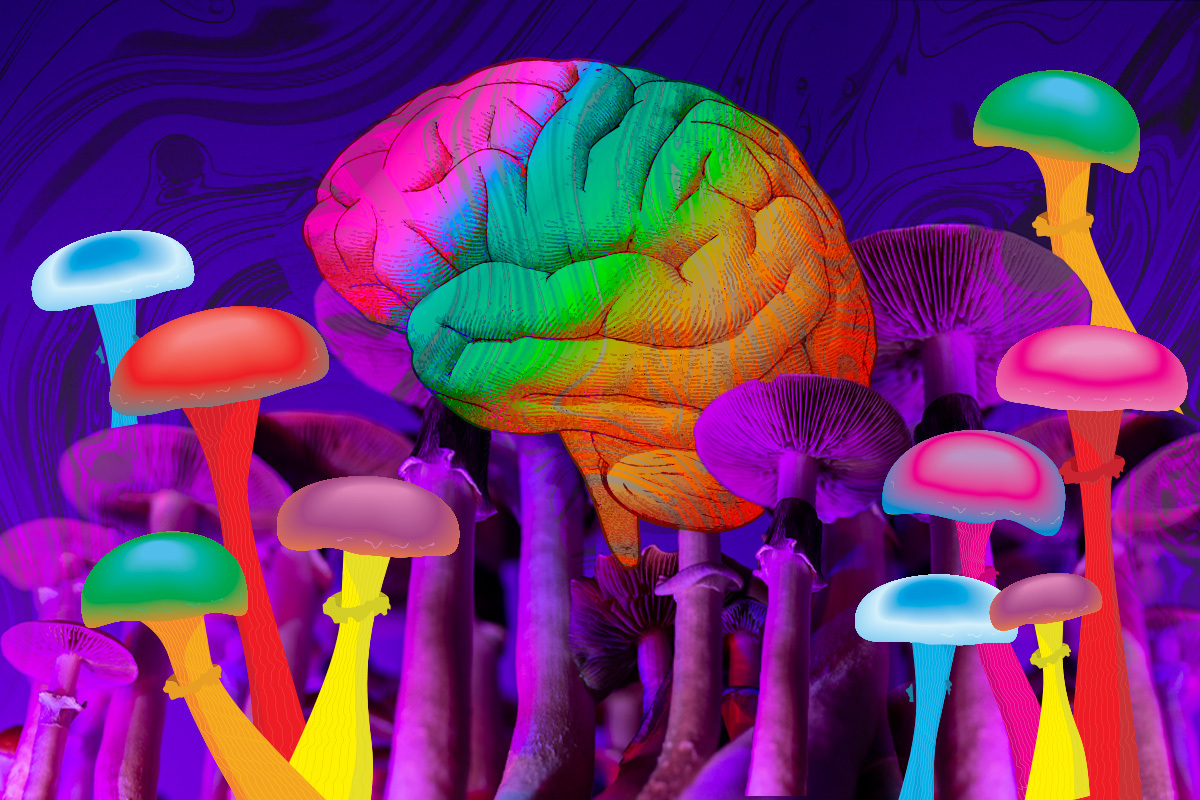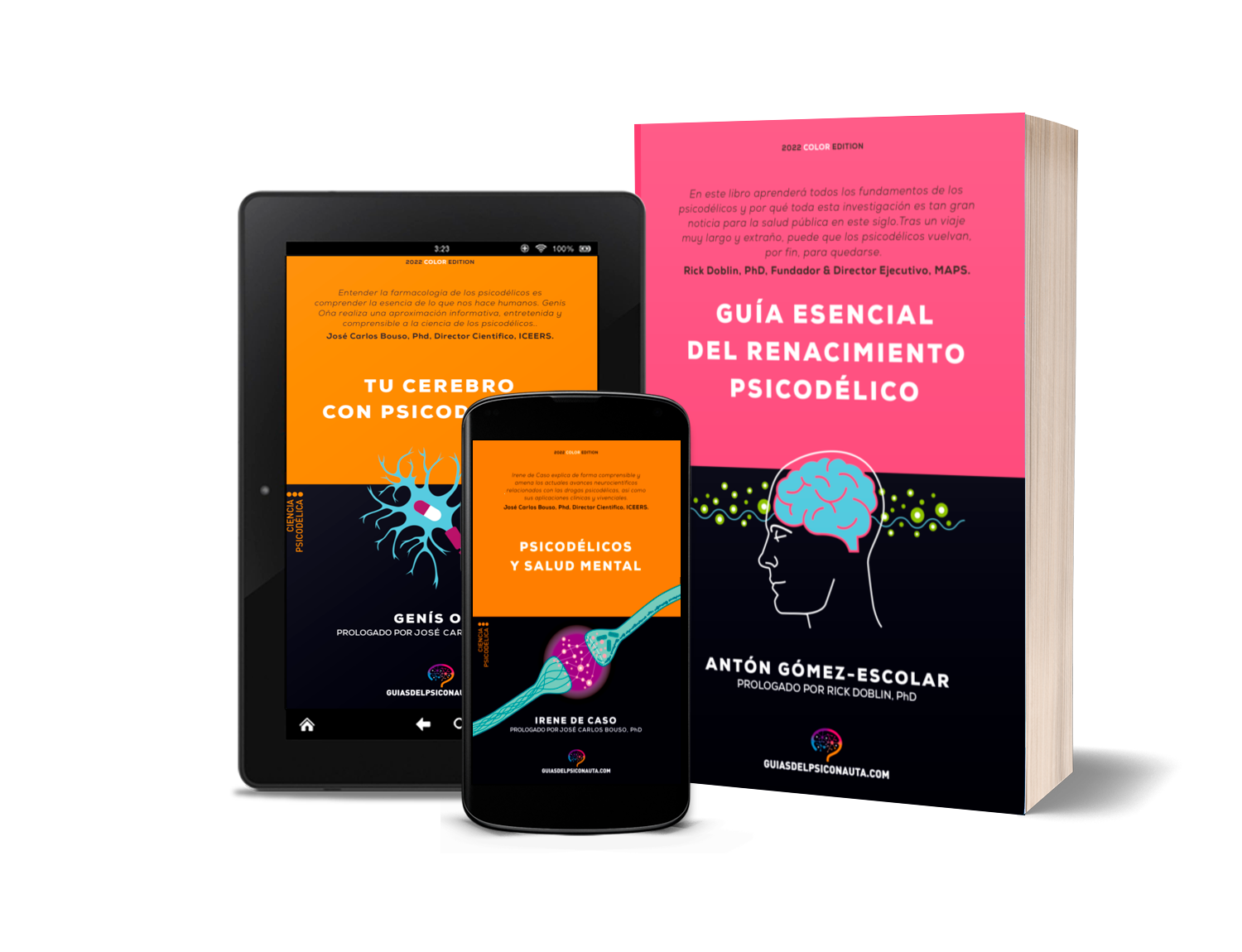By Gabriel García September 16, 2024
In an effort to find alternatives to traditional treatments for depression, a recent study has put the spotlight on psilocybin, a psychedelic compound found in hallucinogenic mushrooms. Published in the medical journal BMJ, the study compared the efficacy of psilocybin with that of escitalopram, a selective serotonin reuptake inhibitor (SSRI) and one of the most commonly prescribed antidepressants.
The Promise of Psychedelics
SSRIs, such as escitalopram, have been a mainstay in the treatment of depression for decades. However, not all patients respond favourably to these drugs, and some experience significant side effects. This has led scientists to explore alternatives, most notably psychedelics such as LSD, mescaline and, especially, psilocybin.
Unlike conventional treatments, which require continuous administration, psilocybin could offer lasting benefits in as little as one or a few sessions. This approach could represent a paradigm shift in how we treat mood disorders.

Study Results
The study looked at the efficacy of psilocybin compared to escitalopram in patients with depressive symptoms. The results showed that psilocybin, at high doses, not only outperformed placebo, but was also slightly more effective than escitalopram in relieving depressive symptoms.
Importantly, this superiority does not suggest that psilocybin should replace escitalopram. On the contrary, it points out that both treatments have unique characteristics that can complement each other. While escitalopram reduces symptoms gradually and requires continuous use, psilocybin acts more quickly and its effects can last for months or even years.
Challenges and Considerations
Despite its potential, the use of psilocybin is not without its challenges. High doses of psilocybin can cause intense subjective effects, ranging from profoundly mystical experiences to psychotic episodes in some cases. These effects, while manageable in therapeutic settings, can be difficult to manage and require supervision by trained professionals.
In addition, the hallucinogenic nature of psilocybin complicates its use in scientific research. The difficulty of creating a suitable placebo that does not induce similar experiences has been a stumbling block in clinical studies, affecting the objectivity of results.
The Future of Psilocybin in Medicine
Psilocybin offers a promising prospect in the treatment of depression, especially for those patients who do not respond to traditional treatments. However, its use as a therapy must be accompanied by a safe and controlled environment, where it is combined with assisted psychotherapy.
The road towards integrating psychedelics into mainstream medicine still faces regulatory and research barriers. However, with studies like this one, progress is being made in understanding how these compounds can be used safely and effectively to improve mental health.
Depression is a complex and multifaceted condition, and the discovery of new therapeutic tools, such as psilocybin, could mark a turning point in the fight against the disorder. With further research and a cautious approach, psilocybin could become a viable and revolutionary option for the treatment of depression in the near future.

If you are interested in learning more about this exciting world, we invite you to consult the Psychonaut’s Guides by Argonowta. These books will give you a broad and balanced view of psychedelics and their potential therapeutic effects. Remember, however, that these substances are not a panacea or a magic solution to all your problems. Their use requires professional guidance, an appropriate context and a responsible attitude. Psychedelics can be a powerful tool for personal change, but they can also be dangerous if used inappropriately or irresponsibly.
The Psychonaut’s Guides from Argonowta Publishing is a collection of books that explain in a rigorous and accessible way the scientific, historical, cultural and experiential aspects of psychedelic substances. These guides offer updated and contrasted information on the therapeutic and neuroscientific applications of psilocybin, LSD, DMT and MDMA, as well as practical advice on how to prepare, carry out and take advantage of psychedelic experiences. The Psychonaut’s Guides are a must-have reference for anyone interested in learning about the psychedelic renaissance that is transforming mental health and changing lives.





